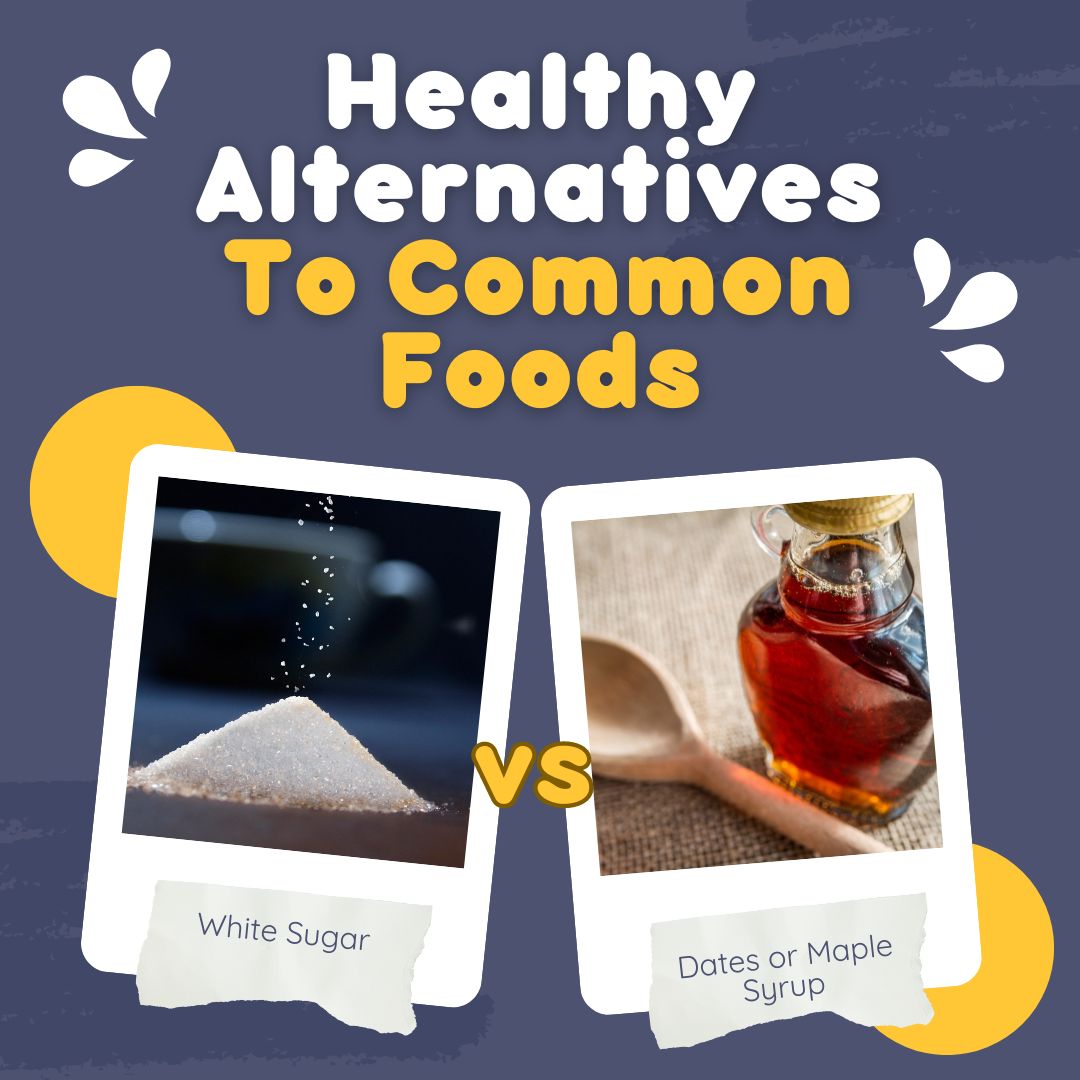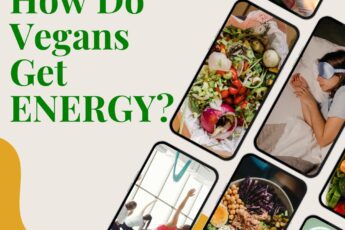Looking for healthy alternatives to common foods that fit a plant-based lifestyle? Whether you’re focused on a plant-based lifestyle or just aiming to eat more whole, nutritious foods, simple swaps can make a big difference.
Our Approach: Healthy Alternatives To Common Foods
Inspired by the practical approach of EAT THIS, NOT THAT this guide offers plant-based alternatives to common foods, helping you make healthier choices without sacrificing flavor or convenience. These easy changes work for anyone wanting to cut back on processed ingredients, added sugars, and unhealthy fat, supporting better health without giving up the foods you love.
Note: These suggestions are meant to offer simple, common-sense improvements. I’m not a medical professional, so if you have specific health concerns, it’s always a good idea to talk with your doctor or a registered dietitian about what’s best for you.
Sweeteners and Oils
This category highlights better-for-you plant-based swaps for sweeteners, oils, and mayonnaise, all of which show up in everything from cooking to baking and condiments.
| Better Option | Less Healthy Option |
|---|---|
| • Maple syrup • Date syrup • Coconut sugar • Whole fruits (like bananas, dates) | • White sugar • High-fructose corn syrup • Artificial sweeteners |
Quick Tip: Blend dates or use ripe bananas in baked goods or smoothies for a natural sweetener that adds fiber and nutrients.
Is It Worth It?
✔️ Theory: Natural plant-based sweeteners are less processed and sometimes offer trace nutrients.
✔️ Practicality: Most can easily be used 1:1 in recipes. They may cost a bit more, but the flavor and nutrition are usually worth it.
Oils & Fats
| Better Option | Less Healthy Option |
|---|---|
| • Extra virgin olive oil • Avocado oil | • Coconut oil • Vegetable oil (e.g. canola, soybean) |
Quick Tip: Use olive or avocado oil for sautéing or salad dressings. Coconut oil may seem healthy but is high in saturated fat.
Is It Worth It?
✔️ Theory: Olive and avocado oils support heart health and reduce inflammation.
✔️ Practicality: Slightly pricier, but widely available and easy to use in nearly all cooking.
Mayonnaise
| Better Option | Less Healthy Option |
|---|---|
| • Avocado mayo • Homemade mayo with olive oil | • Store-bought vegan mayo (with processed oils) |
Quick Tip: Many store-bought vegan mayos still use refined oils and preservatives. Look for clean labels or try homemade.
Is It Worth It?
✔️ Theory: Avocado-based mayo has fewer additives and better fats.
✔️ Practicality: Store-bought avocado mayo is becoming more available. Homemade versions are quick and customizable.
Dairy Alternatives and Spreads
Plant-based dairy substitutes can deliver similar flavor and function with fewer saturated fats and no cholesterol, check out some of our recommended PLANT-BASED DAIRY SWAPS for tasty and practical options.
| Better Option | Less Healthy Option |
|---|---|
| • Unsweetened almond, oat, or soy milk • Cashew cream • Nutritional yeast (cheesy flavor) • Store-bought or homemade dairy-free yogurts | • Whole milk • Sweetened or flavored dairy milk • Cheese made with animal-based rennet |
Quick Tip: Always check the label, many plant-based milks come with added sugars and fillers. Go for unsweetened and fortified versions.el to avoid unnecessary added sugars.
Is It Worth It?
✔️ Theory: Unsweetened versions help control sugar intake.
✔️ Practicality: Most stores carry both types, so it’s an easy upgrade without a big change in taste.
Grains, Beans & Staples
Staple items like grains, pasta, and canned goods often have more nutritious alternatives. This section focuses on whole-food plant-based options that add fiber and reduce unnecessary additives.
| Better Option | Less Healthy Option |
|---|---|
| • Brown rice • Quinoa • Whole wheat pasta • Lentil or chickpea pasta • Dry or no-salt-added beans | • White rice • Regular pasta • Canned beans with added sodium • Pre-seasoned grain mixes |
Quick Tip: Batch cook grains and beans at the start of the week for quick meals.
Is It Worth It?
✔️ Theory: Whole grains and beans provide more fiber, protein, and nutrients.
✔️ Practicality: May require more prep, but dry goods are budget-friendly and long-lasting.
Snacks
Even packaged snacks can have better-for-you versions. This section focuses on plant-based options that satisfy cravings while keeping ingredients simple.
| Better Option | Less Healthy Option |
|---|---|
| • Air-popped popcorn • Roasted chickpeas • Trail mix with nuts & dried fruit • Whole food snack bars (like Lara Bars) | • Potato chips • Processed granola bars • Candy • Vegan “junk food” with additives |
Quick Tip: When choosing packaged snacks, stick to short ingredient lists and recognizable foods.
Is It Worth It?
✔️ Theory: Less processed snacks support better energy and digestion.
✔️ Practicality: Easy switches—many healthier versions are found in the same snack aisle.
The Bottom Line on Healthy Alternatives to Common Foods
Understanding the factors that contribute to the healthfulness of various plant-based foods can help you make more informed, balanced decisions. While our focus is on healthy alternatives to common foods, many of these plant-based swaps are relevant no matter your diet. Not every change needs to happen all at once, just knowing your options helps you choose what works best for your taste, budget, and lifestyle.
Start small, be consistent, and feel good about the steps you’re taking toward healthier eating, one simple swap at a time.






